Interview with Odile Mojon-Cheminade, political analyst from the Schiller Institute.
Interview with Odile Mojon-Cheminade, political analyst from the Schiller Institute.
French President Emmanuel Macron and his Russian counterpart, Vladimir Putin, spoke by phone for the first time since September 2022. The call took place amidst escalating tensions in the ongoing war in Ukraine and after the “12-day war” between Iran and Israel ended.
We asked Odile Mojon-Cheminade, political analyst from the Schiller Institute about the reason for this critical meeting and its potential consequences.
What did you think of French President Macron’s meeting with Russian President Putin after a long break?
First, both official, on the Russian and the French side, communiques are pretty short if one considers that they are reporting about a two-hour-long discussion.
The discussion focused on Ukraine and Iran’s nuclear program. According to their statement, the Russians insisted on Teheran’s legitimate right to develop peaceful nuclear energy, while the French side remained silent on this issue. On the other hand, the common ground is the emphasis on the role of diplomacy and the decision that was taken to maintain contact and coordinate as necessary. Macron’s call is therefore a minor step to appease the European situation, but it is nonetheless a step, compared to the attitude of the German Chancellor Merz, who refuses to talk to Putin, and Defense Minister Pistorius, who remains at the level of insults.
The same trend can be seen with regard to Ukraine, with Putin highlighting the fact that the war in Ukraine was the result of aggressive policies by Western countries, while Macron reaffirmed his unconditional support for Ukraine’s territorial integrity, which at this point cannot be but a posture.
That is basically what we know about these two hours of discussion. It is, to say the least, very little.
In any case, the mere fact that Macron spoke to Putin is positive, but what will come of it?
Is Emmanuel Macron once again stirring things up to get himself talked about? It is tempting to think so, given how disastrous his government’s actions have been and how much they have weakened France. Another hypothesis would be that he is taking stock of the gravity of the situation both outside and inside France and is trying to prevent the worst from happening.
However, his current visit to the United Kingdom, during which issues of defense and immigration are being discussed, gives to say the least a very mixed impression, that of a man overwhelmed by events and trying to grab issues to pretend to be influent.
Relations between France and Russia in the medium term
Is it right to expect normalization of relations between France and Russia in the medium term?
I hardly think so. To normalize the relations between the two countries would mean to take responsibility for such an evolution, confront other European nations and go against the EU and Ursula von der Leyen, who owes her place thanks to Macron himself.
Besides, The European Union is next to being nothing more than an extension of NATO, which is itself the flagship of the war hawks but also which represents a broader project. Remember how, at the NATO summit in Warsaw in 2016, the idea of a more comprehensive approach to NATO was already discussed? Then, at the London summit in 2019, the concept of a “global NATO” was further developed and discussed with the leaders emphasizing the importance of NATO in managing global security challenges and the need for a more comprehensive and coordinated approach. However, it was in Madrid, in 2022, that the need for NATO to adopt a more comprehensive approach to address emerging security challenges, including hybrid threats, cybersecurity, and challenges posed by global actors such as China was openly discussed, beyond the shores of the Atlantic.
In any case, France is presently engaged in the so-called Coalition of the Willing, launched by England in March 2025, where Macron wants France to play a leading role and, in that perspective, he has to adhere to peddle the right rhetoric although his determination may appear doubtful. Nonetheless, as of now, it is assumed, but this is difficult to assess correctly, that about 4000 French “soldiers” or “mercenaries” would be in Ukraine. We don’t know precisely, but for sure there is an involvement, particularly in advanced technologies, not far from but not in the actual front lines.
One main point to be understood, however, is that the present wars, not only in Ukraine but also in the MiEast, have to be seen against the background of the collapse of the financial Western economic order based on debt and speculation. This started on August 15th 1971, under Richard Nixon presidency, when it was decided to end the convertibility of the dollar into gold in August 1971, after the insane expenses from the Vietnam war and under the pressure of the Anglo-American oligarchy. This decision, known as the “Nixon Shock,” marked the end of the Bretton Woods system, which allowed foreign countries to convert their dollar reserves into gold and the final take-over of the Western system by the financial oligarchy. De Gaulle, for example, had been politically eliminated because he opposed that the principle of State sovereignty be handled to the financial Far West rules by the bandits.
Today, we are in the end phase of this process, and the logical as well as perfectly predictable outcome of such a system is the war as a mean to perpetuate itself and continue its endless and always more horrific policies of privatization, looting and expropriation.
That is what stands in the background of the narrative in order to present sovereign Russia as an enemy to be defeated at all costs. Another consideration to be aware of is the British Empire obsession with taking hold and breaking apart, in small territories that can be easily manipulated, Russia as well as the Middle East. Various sessions of the Jameson Foundation, the Heritage Foundation and the Hudson Institute took and are still taking place in the U.S. on the dismantling of Russia.
France and Germany regarding Ukraine
Are there differences of opinion between France and Germany regarding continuing the war against Russia in Ukraine?
Clearly, there are differences. Suffices it to witness how Friedrich Merz, Germany’s chancellor, reacted to Macron’s discussion with Poutine by saying that he would adamantly refuse to do so. However, Merz is far from representing Germany, in exactly the same way as Macron in France. In particular, countless small and medium-sized enterprises are suffering a lot and are about to go bankrupt, and this trend is progressively touching the big industries. This generates discontent and people are starting to raise their voice, in an unprecedented way since many years of submission to the American protector.
This situation and the fact that by now 5% of the national GDP in each European nation is supposed to be allocated for the defense, producing and buying weapons, will actually be discussed in an international conference of the Schiller Institute to be held in Berlin, this coming week-end, where prominent personalities from the BRICS will speak. The idea is to connect the ferment in the BRICS countries after the July 6-7 Rio de Janeiro summit with the discontent in Germany and France so as to advance the conception of a new international architecture based on security and development to the benefit of all nations, outside of the rule from the financial dollar.
We see Dominique de Villepin rising in the polls. How does the political tradition Villepin represents view Eurasia and relations with Russia?
De Villepin is part of a Gaullist tradition of national independence, a tradition that prioritizes diplomacy that is not subservient to any particular power and, very importantly, believes that France must play a balancing role in the world. He himself played a positive role that will go down in history when he created the conditions under which France refused to engage in the war with Iraq, and we should be very grateful to him for that. He also took a clear and contrarian stance on the situation in Gaza. I think he has contributed to a very noticeable change in France on this issue.
However, I believe that we are still a long way from achieving our common goals on substantial issues. It is very likely that Villepin will run for president in 2027, he has created for that a new party, that he labeled “The Humanist Party”, but we will have to see what he proposes at that time. His connections with the Gulf states are not a secrete. Will he be able to free himself from Anglo-American tutelage and that of the financial markets, and serve the fundamental interests of France, and therefore of the population?
That remains to be seen. What will be decisive is what vision for the future he is able to offer, and in particular whether he intends to work seriously with the BRICS countries and whether he plans to rid France of the vestiges of colonialism that prevent it from playing the role it is destined to play.
The pesrepective of the Left and the Gaullist tradition
What do the left and the Gaullist tradition in France think about the ongoing tensions with Russia?
Almost everyone refers to de Gaulle these days, at least among sovereignists, because he is undoubtedly the most important figure in recent history. The only problem is that most of the time, those who swear by de Gaulle have not bothered to study him seriously, particularly to see which schools of thought he refers to and how these can be traced back to ideas that may be considered either more “left-wing” or more “right-wing” depending of chat is the subject.
De Gaulle came from a Catholic family with strong right-wing leanings, but when we look at his evolution over the years, we see how much he changed and broke free from certain ideas without denying his roots. His father, a catholic conservative, nonetheless sided with the Dreyfus camp at the beginning of the XXth century, breaking with the political rules of the game for the sake of justice.
This independent thinking is clear with regard to the Algerian independence, which provoked incomprehension and anger from the colonial party, but de Gaulle understood that France had to take the plunge and be on the right side of history, and he did so despite everything.
Another very innovative idea, which did not come to fruition, concerned the participation of the French people in the productive work of society.
De Gaulle brought the issue of participation to the fore from the 1960s on, as part of his vision of a more involved and responsible society. The idea of participation was central to his political and social philosophy, and he presented it as a means of reforming French society by involving workers in the management and profits of companies.
Unfortunately, it was not followed.
The reason I am giving you these brief details is to provide you with a sense of how de Gaulle, as in the days of the Resistance, is par excellence a man who can unite the “true left” and the “true right.” for a higher purpose. But this presupposes that both sides take a real “leap forward,” to paraphrase Mao, and emerge from the pragmatism and short-term vision in which they are immersed, often without being fully aware of it.
These men and women exist, as they did during the Resistance. They are not the most numerous, but the world is working with them! To understand the motion of the BRICS and join their impulse is the challenge to be met now, following the spirit of those predecessors, as meant by de Gaulle and Jean Moulin, the other great hero of the Résistance against nazism.







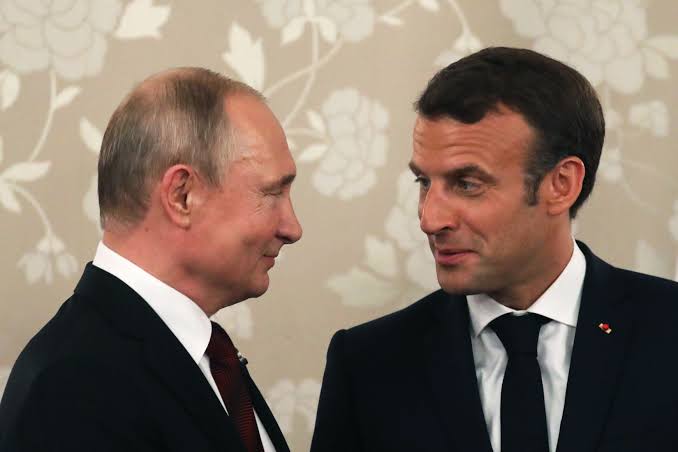

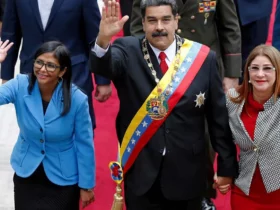
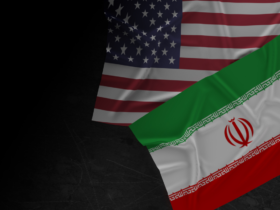
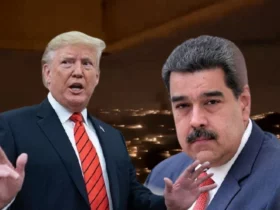
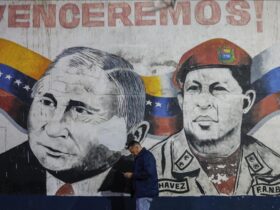
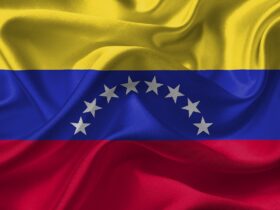

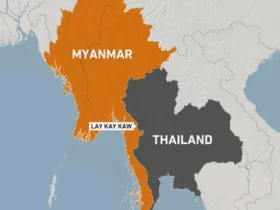

Leave a Reply